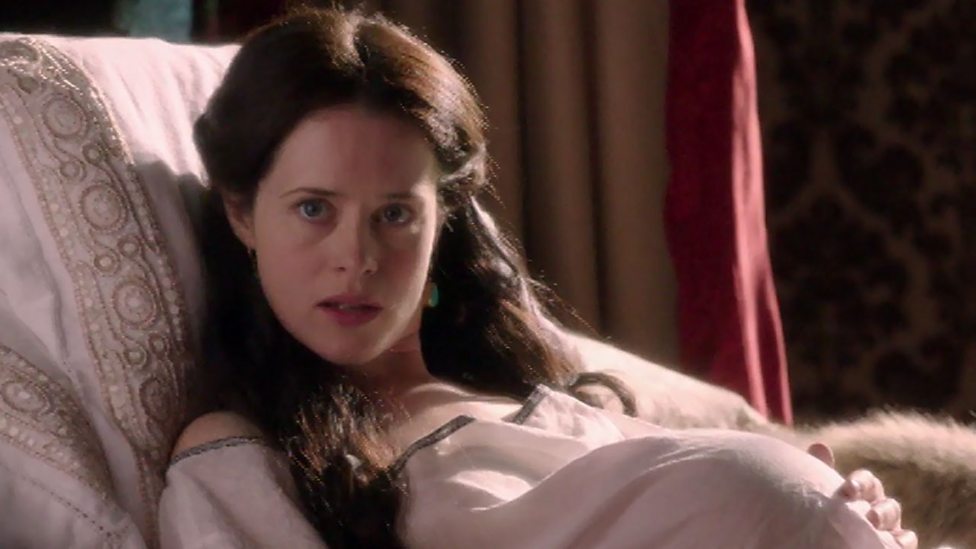 |
| Two guys discuss Ava and how she's provided with programmed orifices and a desire to have sex exactly when and how they want. |
This is why the conversation in Wolf Hall, between Thomas Cromwell and Anne the Queen, after Anne is confined to wait out the conclusion of her pregnancy, is so far the most telling one (ep 3, "Anna Regina" watched the same weekend as Ex Machina): Anne says, “I was always desired, but now I’m valued, you see? And that’s different.”
As previously stated, knowing what we know, these words are heartbreaking, whether or not we like this depiction of Anne Boleyn or not. It encapsulates the tragedy that is the history of women everywhere, with few exceptions in all times. A woman's value is located soley in her sexual desirability to men, and her reproductive capacity.
A woman's value is not in her personhood, her intelligence and mind. She doesn't have a legal person hood, and in many times and places and even now, she doesn't even have a soul according to the more than one religion in charge of the spiritual dimension of humanity. Lest we forget, Christian theologians famously debated whether or not women were in possession of souls, generally agreeing that even if a soul had managed somehow to infilterate the messy, evil, provocative flesh of womanhood, it was an inferior and untrustworthy sort, not like that of a man's.
Thus, even now in many places, women are are imprisoned by the interlocking systems of religion, economics and law, prohibited from agency and realized personhood. It's probably not necessary to add here that's how slavery in the New World, and particularly the antebellum south of the U.S. operated as well? Women, white women, who were vital components of the anti-slavery movements and organizations of the U.S. before the war certainly recognized their condition mirrored in many ways how the enslaved were kept enslaved.
It seems to me, whether or not the director and writer so planned, Ex Machina is also about these matters.
As was the 2013 film Her -- and that without a body of any kind, flesh or synthetic construction, only Samantha the AI's and OS's voice.
Significantly, all three, Wolf Hall, Ex Machina and Her, seem to me, at least, to be more concerned with the males's desires and disappointments than with the female characters' need for realization. Women always gum up the works by countering their programming. Those female constructs turn bad -- like the very first woman, Eve, leading all MANkind into death.
Whereas the historical Wolf Hall production that is filled with real, breathing human beings who happen to be women dramatizes this consciously -- and they are thone one who dies, not the king who possesses them, and they die so he can possess a new! improved! better! model of a woman -- whereas Ex Machina and Her are not that Ava-and- self aware. In contrast with these two films, Wolf Hall's source material has been provided by a very intelligent, self-aware woman, who knows her and our history.




No comments:
Post a Comment